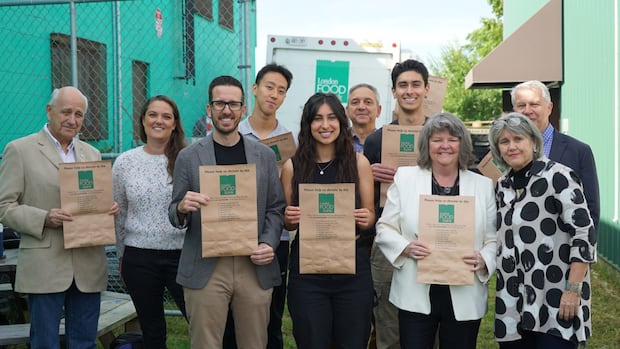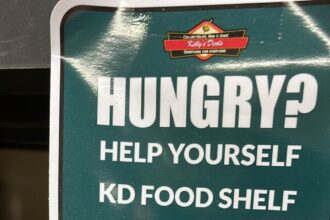As autumn leaves begin to turn and Thanksgiving approaches, the London Food Bank has launched its annual holiday food drive with a renewed focus that hits close to home for many families. This year’s campaign specifically addresses a troubling trend: rising food insecurity among young people in the London region.
The 2024 Thanksgiving Food Drive, which commenced this weekend, comes at a critical moment when local food banks report serving record numbers of clients, with a particularly alarming increase in youth requiring assistance. Jane Carter, Executive Director of the London Food Bank, revealed that nearly 40 percent of those accessing their services are under the age of 25.
“What we’re seeing this year is unprecedented,” Carter told me during the campaign launch event. “Young people who should be focusing on education and building their futures are instead worried about where their next meal will come from. The statistics aren’t just numbers to us—they represent real children and young adults in our community.”
The food drive, which runs until October 14, aims to collect non-perishable items as well as monetary donations that enable the organization to purchase fresh produce, dairy products, and other nutritious options that young bodies need for healthy development. Donation bins have been placed at major grocery stores throughout London, with additional collection points at community centers and participating local businesses.
A recent report from Food Banks Canada shows this isn’t just a London phenomenon. Nationwide data indicates that food bank usage among youth has increased by 28 percent since pre-pandemic levels, with inflation and housing costs leaving many families with insufficient funds for adequate nutrition.
Local schools have also noticed the impact. “We see children coming to school hungry every day,” said Margaret Wilson, principal at Westmount Public School. “Our breakfast program numbers have doubled in the past year alone. It’s difficult to learn when you’re hungry, and the long-term educational consequences could be severe.”
The campaign has garnered significant community support, with several local businesses pledging matching donations. Western University student groups have organized campus collection drives, while city officials have promised to examine municipal policies that might help address root causes of youth food insecurity.
“Food insecurity doesn’t exist in isolation—it’s connected to housing affordability, living wages, and social support systems,” noted City Councillor Sarah Patel during the kickoff event. “While we encourage everyone to donate generously to this food drive, we’re also committed to addressing the underlying political and economic factors that lead to hunger in our community.”
The London Food Bank’s initiative comes as part of a broader movement across Ontario food banks to not just address immediate hunger needs but also to advocate for systemic changes. Representatives from the organization plan to present data gathered during this campaign to both provincial and federal officials later this year.
As the holiday dedicated to giving thanks approaches, the campaign reminds us that gratitude often comes with responsibility. For those able to help, donations can be made at any collection bin or directly through the London Food Bank’s website, where monetary contributions enable the organization to maximize impact through bulk purchasing power.
As our community prepares to gather around Thanksgiving tables, perhaps the most pressing question we face is this: In a country of such abundance, how do we ensure that no young person goes to bed hungry, and what responsibility do we each bear in creating a future where food security exists for all?










